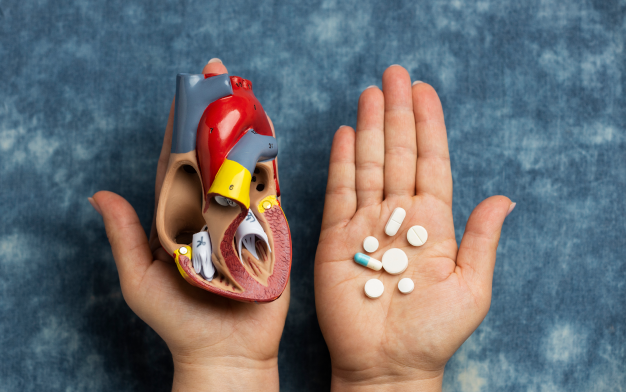Introduction
A healthy heart is the cornerstone of overall well-being. Making heart-healthy lifestyle changes is a proactive way to reduce the risk of heart disease, improve cardiovascular health, and increase your quality of life. In this article, we will explore some small yet impactful steps you can take to promote a healthier heart and better overall health.
- Prioritize a Balanced Diet
- Get Moving Regularly
- Quit Smoking
- Manage Stress
- Control Your Blood Pressure
- Keep Cholesterol in Check
- Limit Alcohol Consumption
- Maintain a Healthy Weight
The food you eat directly affects your heart health. A heart-healthy diet can help manage weight, control cholesterol levels, and maintain blood pressure. Consider these dietary changes:
- Increase Fruits and Vegetables:Aim for at least five servings of fruits and vegetables daily. They provide essential vitamins, minerals, and fiber.
- Choose Whole Grains:Opt for whole grains like brown rice, whole wheat bread, and quinoa over refined grains for added fiber and nutrients.
- Lean Protein: Incorporate lean sources of protein, such as poultry, fish, legumes, and tofu, while limiting red meat and processed meats.
- Healthy Fats: Replace saturated and trans fats with healthy fats like those found in olive oil, avocados, and nuts.
- Limit Salt: Reduce your sodium intake by minimizing processed and restaurant foods. Season your meals with herbs and spices instead.
Physical activity is a cornerstone of heart health. Regular exercise helps maintain a healthy weight, strengthens the heart, and lowers the risk of cardiovascular diseases. Aim for at least 150 minutes of moderate-intensity exercise per week. Consider activities like brisk walking, swimming, or cycling.
Smoking is a major risk factor for heart disease. The chemicals in tobacco can damage the heart and blood vessels, leading to the narrowing of the arteries. If you smoke, seek assistance to quit, as it's one of the most significant steps you can take for heart health.
Chronic stress can contribute to heart disease. Find healthy ways to manage stress, such as mindfulness meditation, deep breathing exercises, yoga, or spending time with loved ones. Prioritizing self-care can significantly reduce stress levels.
High blood pressure (hypertension) is a significant risk factor for heart disease. Monitoring your blood pressure regularly and following your healthcare provider's recommendations for medication and lifestyle changes is vital.
High levels of LDL ("bad") cholesterol can contribute to the buildup of plaque in the arteries. Work with your healthcare provider to manage your cholesterol levels through dietary changes and, if necessary, medication.
While moderate alcohol consumption may have some heart benefits, excessive alcohol can raise blood pressure and contribute to heart problems. If you drink alcohol, do so in moderation, which is generally defined as up to one drink per day for women and up to two drinks per day for men.
Excess weight puts additional strain on the heart and increases the risk of heart disease. Focus on maintaining a healthy weight through a combination of a balanced diet and regular physical activity.
Conclusion
Small lifestyle changes can lead to significant improvements in heart health. By prioritizing a heart-healthy diet, regular exercise, stress management, and other key factors, you can lower your risk of heart disease and improve your overall well-being. Remember, it's the small, consistent steps that add up to a healthier heart and a longer, more fulfilling life. Make these changes gradually, and with time, they'll become a natural and sustainable part of your everyday life.
.pdf%20300X60%20PX-02-02.svg)



